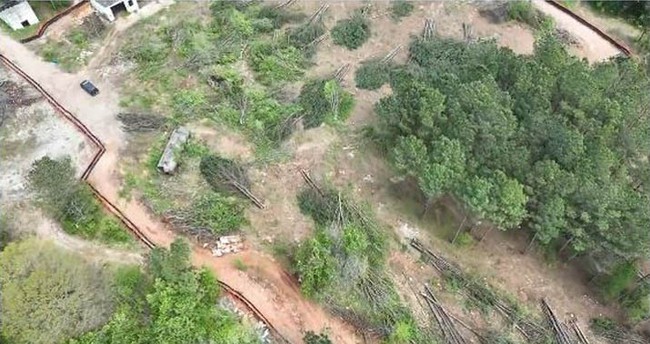Despite heightened tensions between Washington and Beijing over the recent spy balloon downing , a U.S. congressional delegation led by California Rep. Ro Khanna plans to visit Taiwan this weekend, a move sure to be seen by China as a provocation.
Khanna (D-Fremont) and a group of Democratic and Republican lawmakers were headed to Taiwan Friday night, aides familiar with planning for the trip told The Times. They plan to meet with the president of Taiwan in a mission “to bolster ties between Silicon Valley and the Taiwanese semiconductor industry,” Khanna’s office said.
China considers Taiwan to be a renegade province that should be forced back into the communist fold.
Many Taiwanese prefer independence. The island currently enjoys a large degree of self-rule, with a relatively democratic government and close ties to Washington and other Western nations.
“I look forward to learning more about Taiwan’s semiconductor industry and the economic ties between Taiwan and my district of Silicon Valley,” Khanna said in a prepared statement before the trip.
Taiwan is one of the world’s leaders in the production of semi-conductors and Khanna said its work “is critical to my district.”
Beijing has long viewed any overtures to Taiwan by U.S. officials or other countries as a threat.
On Thursday, China imposed trade and investment sanctions of major U.S. corporations, including Lockheed Martin and Raytheon, as punishment for selling weapons to the island. The two companies are among the suppliers in a $1.1 billion U.S. military package for Taiwan, which receives most of its arms from Washington.
When then-House Speaker Nancy Pelosi (D-San Francisco) similarly traveled to Taiwan in August, China reacted with exceptional fury. Because she was third in line to the presidency and a member of President Biden’s political party, her actions were seen by many in China as having extraordinary official meaning and weight. (She was, however, not the first speaker of the House to visit Taiwan.)
China responded by dispatching warships into the Taiwan Strait and other waters surrounding the island, and fighter jets over the region that launched long-range missiles as part of what China called an “exercise.”
Since the Pelosi trip, a couple of lower-profile congressional delegations have made the same trek but with less reaction from Beijing.
State Department diplomats routinely warn Congress members of the sensitivities and potential fallout from any trip to Taiwan, but lawmakers have the final say about whether to travel.
Administration officials have defended the right of U.S. politicians to visit Taiwan and criticized Chinese reactions.
“China should not use any visit as a pretext to intensify its actions around Taiwan,” a senior State Department official said Friday.
The timing of Khanna’s delegation is, nevertheless, especially fraught.
On Feb. 4, off the coast of South Carolina, U.S. fighter jets shot down a massive Chinese balloon that had traversed the continental United States on what Washington maintains was a spy mission.
In the days that followed as anxiety over Chinese espionage skyrocketed, the U.S. shot down three more “unidentified aerial objects” flying over the far-northern U.S. and Canada. The Biden administration now says the later three vessels were probably benign and not Chinese spy instruments.
The incident led to a new low in relations between Washington and Beijing. The first balloon prompted Secretary of State Antony J. Blinken to cancel a critical trip to the Chinese capital for high-level meetings aimed at beginning to restore a working relationship between the two governments.
China meanwhile has responded with angry accusations.
“The overreaction by America — and its moves to heighten the issue — have exacerbated the situation” and “caused new wounds in China-U.S. relations,” Xu Xueyuan, the charges d’affaires at the Chinese Embassy in Washington, wrote in an opinion column in Friday’s Washington Post.
China maintained that the balloon, whose payload was said to measure the length of three buses, was a weather instrument that strayed accidentally into U.S. airspace.
The new House speaker, Rep. Kevin McCarthy (R-Bakersfield), meanwhile, is also said to be thinking of a visit to Taiwan. As more Congress members of lower rank make the trip, pressure on him builds to seize the mantel of a cause dear to political conservatives.
Khanna is also a member of the new House Select Committee on China, which focuses on potential threats posed by the world’s second largest economy, especially for Taiwan.
Taiwan and China split in 1949 after a civil war. The U.S. has traditionally maintained a “One China” policy, a deliberately ambiguous recognition of the People’s Republic of China, with whom it has diplomatic relations, without abandoning Taiwan’s claim to independence.
The U.S. has not formally recognized Taiwan as independent. But Biden has thrown doubts over the One China policy in recent statements by expressing a willingness to defend Taiwan militarily if China were to attack.
Khanna said he hoped his visit, possibly to be followed by a trip to China, might ease tensions.
“While I am there [in Taiwan], I also plan to affirm the One China policy and make clear we want to do everything we can to deter a military conflict,” he said Friday.





















Discussion about this post